[Editor’s Note: The post below appears today at The Huffington Post and the newly relaunched AOL-Moviefone site, where LFM’s Jason Apuzzo and Govindini Murty will also now be blogging.]
By Jason Apuzzo. The Cold War is back – at least at the movies.
This weekend moviegoers can watch Meryl Streep portray ardent Cold Warrior Margaret Thatcher in The Iron Lady, Gary Oldman root out a dangerous Soviet mole from the British intelligence service in Tinker, Tailor, Soldier, Spy, and Tom Cruise race to prevent a Cold War-style nuclear exchange between America and Russia in Mission Impossible: Ghost Protocol.
These films form part of a major Hollywood trend toward reawakening memories of the Cold War – an era that is suddenly returning with a vengeance on the big screen, with long-term implications for our popular culture.
Currently in the midst of an awards-season run, for example, Clint Eastwood’s J. Edgar tells the story of legendary FBI Director J. Edgar Hoover’s decades’-long confrontation with Soviet infiltration of America. Also in the midst of an awards-season run is the ominous new documentary Khodorkovsky, which depicts how little Russia’s authoritarian governing style has changed since the dark days of the old Soviet Union.
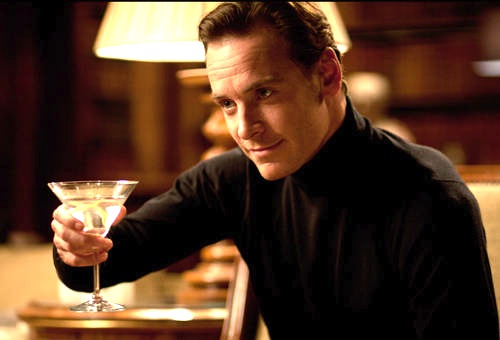
And the trend doesn’t stop there. If Santa slipped new Blu-rays of Transformers: Dark of the Moon, X-Men: First Class, Apollo 18 or The Kennedys into your Christmas stocking, you just got another healthy dose of Cold War nostalgia from those films – because 2011 was a watershed year in Hollywood for reviving America’s long-standing rivalry with all things Russian and/or communist.
So, what’s going on here? Why is Hollywood suddenly reviving Russian communists, spies and autocrats as the go-to villains of choice?
The simplest answer may be that the old Soviet Union is gradually replacing Nazi Germany, Imperial Rome and space aliens as Hollywood’s favorite antagonists. In an industry still hesitant to make films about today’s War on Terror, and with memories of World War II fading, Russian authoritarians – including those of the present day variety – are on their way to becoming Hollywood’s safe, consensus villains of the moment.
This trend began in 2008, with of all things an Indiana Jones film. Set in 1957 at the height of the Cold War, Indiana Jones and the Kingdom of the Crystal Skull featured Soviet communists as the villains, and despite grumbling from critics and internet fanboys the film played well in middle America – taking in over $317 million domestically (a figure even Ghost Protocol seems unlikely to match) and $786 worldwide. Perhaps just as significantly, the fact that the film had been made by Steven Spielberg and George Lucas seemingly gave the green light to other left-of-center filmmakers that depicting Reds as the villains was OK again.
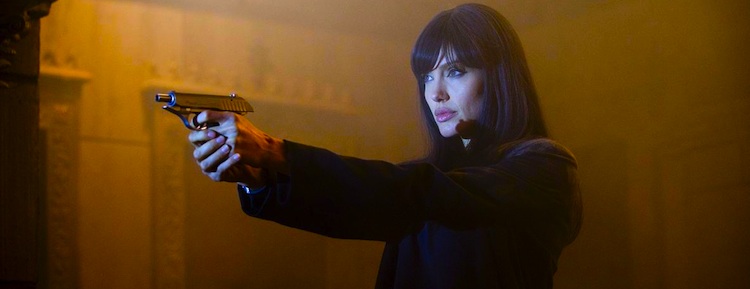
Soon Angelina Jolie was hunting sleeper Soviet agents in Salt (2010), Ed Harris and Colin Farrell were escaping a brutal Soviet gulag in Peter Weir’s extraordinary The Way Back (2010), and even Richard Gere and Martin Sheen were getting in on the act – smoking out a Russian mole in The Double (2011). Released here in the U.S. in 2010, Fred Ward played Ronald Reagan in the French Cold War spy thriller Farewell, and Renny Harlin’s action-drama 5 Days of War (2011) depicted the brutality of Russia’s recent invasion of Georgia.
To be fair, Russians haven’t been the only villains in this trend. MGM’s forthcoming remake of Red Dawn (read a review of an early cut of the film here) depicts a communist invasion of America by the North Koreans and Chinese, similar to the invasion of Australia depicted in Stuart Beattie’s recent thriller Tomorrow, When the War Began (2010). Bruce Beresford’s touching Mao’s Last Dancer (2009) recreated in heartbreaking detail the restrictions in Chinese communist society on artists. And perhaps no recent film captured communist tyranny more vividly than Mads Brügger’s gonzo documentary from 2009 on North Korea, The Red Chapel.
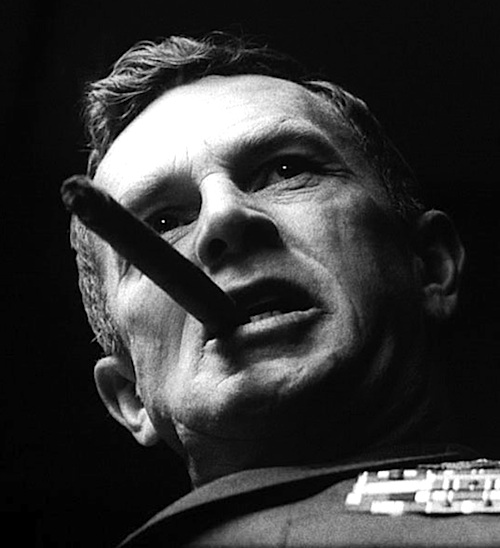
This movie revival of the Cold War – in its many Russian, Chinese and North Korean variations – has intriguing implications. For the past generation, many left-of-center filmmakers have been deeply invested in the notion that the Cold War was a kind of paranoid mirage, a tragicomic figment of Ronald Reagan and Whittaker Chambers’ imaginations. With few exceptions, the basic image created by these filmmakers of the Cold War – codified in films like Dr. Strangelove (1964), or more recently in Good Night, and Good Luck (2005) – has been one of an artificial conflict fueled by American militarism and bourgeois small-mindedness. The sardonic The Russians Are Coming, the Russians Are Coming (1966) serves as perhaps the sine qua non of this genre.
This vision of the Cold War appears to be changing, however, among younger, less ideologically driven filmmakers. These filmmakers view the Cold War simply as a fertile field of storytelling possibilities about the struggle for freedom, in much the same way an older generation viewed World War II. Filmmakers today seem more eager to tell such stories about the Cold War, unearthing the past and depicting the sharp political divisions between East and West, perhaps because these filmmakers detect a continuity between communist tyrannies of the 20th century and similarly repressive regimes today.
After all, Brezhnev and Mao may be gone – but an ex-KGB man still runs Russia, and communists still run repressive regimes in China and North Korea. And America’s relationship with these nations sometimes seems no better than it was before.
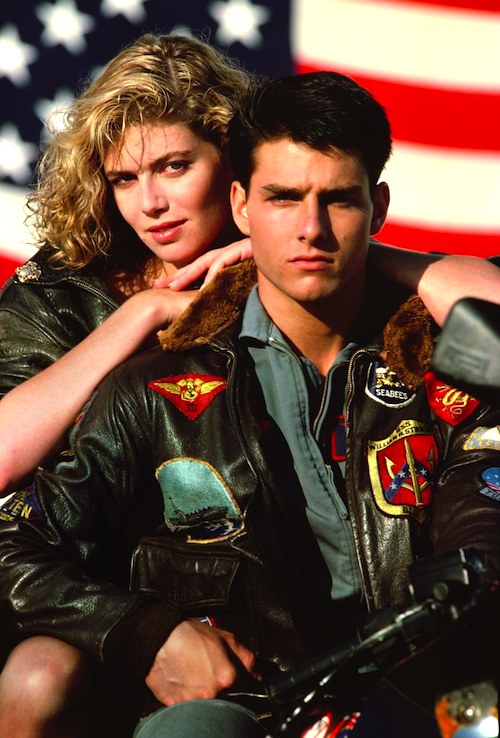
Today’s Hollywood seems alive to these realities as never before, as reflected in a slate of new projects in the development pipeline that channel Cold War themes. Along with sequels to Salt, X-Men: First Class, Die Hard (with Die Hard 5 set to take place in Russia), and even Top Gun, work is also underway to re-boot the Jack Ryan franchise with Chris Pine in a new thriller called Moscow. Remakes of famous Cold War properties like Ice Station Zebra, The Man from U.N.C.L.E., and even Colossus: The Forbin Project are also in development – along with adaptations of the books Londongrad, The Reluctant Communist, and the Red Star comic book.
On TV, HBO and FX are working on competing series about ’80s-era Soviet spies in the U.S., and HBO reportedly has another series in development about Cold War spies in Berlin.
As if that were not enough, Gerard Butler and Ed Harris will soon be trying to stop rogue Russian generals and KGB agents from starting World War III in Hunter Killer and Phantom, respectively. Or if your sensibilities run toward the art house, Andrzej Wajda is currently directing a biopic of Polish Solidarity leader Lech Walesa.
Granted, it shouldn’t be assumed that these films will express a uniformity of opinion about the Cold War, or about current international tensions. Indeed, several recent films like The Iron Lady, J. Edgar, and X-Men: First Class express a pronounced ambivalence about the Cold Warriors they depict.
Watching The Iron Lady, for example, you would hardly know why the Soviet Red Army newspaper labelled Margaret Thatcher “the Iron Lady” in the first place. The film is weirdly evasive of Thatcher’s vital role in ending the Cold War – barely alluding to it except in brief moments of Thatcher with Reagan and Gorbachev, or attending an event commemorating the end of the Cold War. The Iron Lady seems more concerned with Thatcher’s current state of physical fragility than in her momentous alliances with Ronald Reagan, Pope John Paul II and Lech Walesa in hastening the collapse of the Soviet state.
Still, the fascination that films like The Iron Lady or J. Edgar have with Cold Warriors of the past is obvious. And certainly none of these recent films bothers to romanticize the communist cause. Indeed, the days in Hollywood of dueling Che Guevara biopics (Che, The Motorcycle Diaries) – or of Katherine Hepburn wearing a frayed Mao jacket to the Oscars – seem long gone.
The Cold War is back in Hollywood, but this time the idea seems to be to support the winning side.
Posted on January 13th, 2012 at 5:24pm.
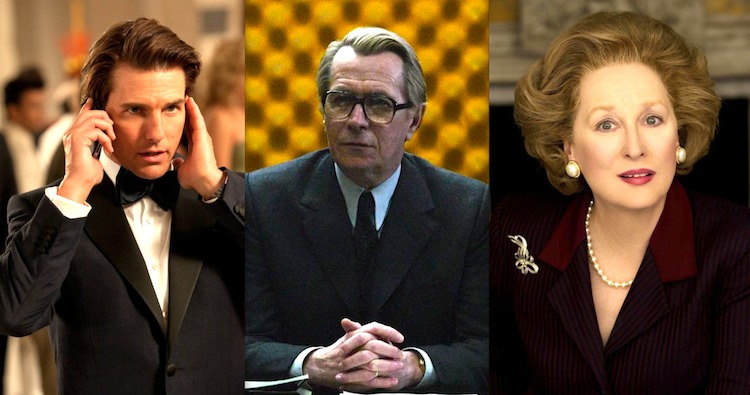
Hopefully Hollywood will grow a pair and sprinkle in more serious works like The Way Back that truthfully portrayed the Communists. In my opinion The Way Back will be as important as the 1978 miniseries, Holocaust and 1975’s The Hiding Place(also one the best portrayals of Christianity I’ve ever seen in the movies). All of which culminated in 1993’s, Schindler’s List and 2005’s Auschwitz: Inside the Nazi State.
I’m all for being entertained at the expense of The Evil Empire but I want to also see the truth told about ALL communist regimes.
I agree with you. The Way Back was truly exceptional, possibly the best film mentioned above, and I hope it serves as a model for what filmmakers can do in terms of portraying the struggle for freedom inside communist societies. This development of depicting communist tyranny in mainstream cinema is long overdue … but better late than never.
Mr. Apuzzo: I enjoyed reading your article very much. I epecially found it interesting how you pointed out that a number of these films undermine past messages of the left. In fact, by doing so, some of these film promote right of center messages.
1. Indiana Jones IV does take place during the days of HUAC and has Indiana Jones being persecuted by the FBI as a possible Communist spy. However the film then shows on more than one occasion that murderous Soviet agents/commandos have infiltrated the country in the guise of American military personnel and federal agents; with innocent American being killed or injured as a result of their actions. As you pointed out, this works to undermine the popular leftist message that the “Red Scare” was a work of paranoia by conservatives.
2. Salt takes this undermining of the leftist message even further by showing the audience that an entire network of Soviet sleeper agents has successfully infiltrated the United States (and United Nations) on multiple levels for decades with the specific purpose of taking down the United States. This film seems to make the argument that Joseph McCarthy was right all along and the leftists WERE WRONG.
3. While the film Tinker Tailor Soldier Spy has Gary Oldman’s character giving the auidence a moral equivalence speech, the British definitley fare better than the agents of Communism, whose acts of viloence range from shocking to disturbing (with innocent civilians also becoming casualties of Soviet violence), thus undermining the moral equivalence statement.
in addition
(as I have stated before, and you have been kind enough to respond to)
4. Transformers III and Mision Impossible IV go even further by diectly painting President Obama’s actions in a negative light. Transformers III has President Obama siding with the Decepticons over the Autobots in the name of peace, directly leading to the deaths of thousands of Americans. Mission Imposible IV has THE PRESIDENT HIMSELF refusing to further investigate the terrorist attack on the KREMLIN (done by a foreign terrorist) and instead purposely throwing our heroes under the bus for the sake of politics by disavowing an ENTIRE agency (IMF) dedicated to protecting the American People (thus forcing its members to go underground because they all now have bullseyes on their heads) and specifically designating our heroes (American Covert Operatives) as “terrorist extremists” (out of the Janet Napolitano handbook) to be dealt with as such.
Another interesting fact is that a number of these films have come out President Obama has ben in office.
Great summaries, Omar. I appreciate your going to the trouble to put all this together – and I think that your analysis is spot on. One minor point: Smiley’s ‘moral equivalence’ speech actually ends with him indicating that Karla was a fanatic – so it’s not clear to me how deeply invested Smiley was ultimately in believing that the two sides were equivalent, after all. I’ll leave this sort of thing to the Le Carré specialists; I’m not familiar with the novel, but the film seemed a bit ambiguous on this point.
Mr. Apuzzo: Your opinions are generous. Again you have taken time out your day to respond to my post and again i am grateful. In addition, thank you for the clarification with the speech from Tinker Tailor Soldier Spy. I had forgotten about that point. That point about Karla being a fanatic has the film increase the threat level that the Soviets and their representatives posed to those who valued freedom in the West. Again, i appreciate you taking time to respond to my post.
Thanks for participating, Omar.
First, Jason, that’s a great piece — one that should reach a lot of people.
“Farewell” and “The Way Back” are only serious examinations of communism of the group. I loved them because they portrayed the evils of communism in a universal way that allow us to question our own government today. We may not live in a communist state, but the United States government is unquestionably fascist — and in many ways, that’s worse than full-blown communism.
That’s why I don’t mind some of the movies that dabble in a little relativism in this matter, because the U.S. is very distant from the image of rugged individualism our founders envisioned. “X-Men: First Class comes to mind, as does the Transformers films, which are particularly effective because they cast a watchful eye on oppressive countries, but also have a healthy distrust of the American government.
So, while I invite communists being the villains again in film, I have to raise my eyebrow when an industry filled with collectivists (even though, I know you say that a new group is gaining a footing in filmmaking) begins collectively embracing one entity of evil.
Basically, I don’t feel comfortable by being told that Cold War enemies are dangerous while the same people making these films — in many instances — are the ones that support the Obama Administration and all of its czars. The films make me aware of a great enemy, but seem to serve as a shell game while the people the artists support rob our freedoms every day.
It reminds me of the James Madison quote: “If tyranny and oppression come to this land, it will come in the guise of fighting a foreign enemy.”
So, maybe the real question surrounding this explosion of Cold War pictures is “why are they coming?” In most cases, I’m sure it’s not for the cause of liberty.
Vince, thanks as always for your comments – I appreciate it.
While I understand your point, I would have to disagree slightly in so far as my sense is that many of these filmmakers are not necessarily supporters of Obama. There has been a big generational turnover in Hollywood and in the filmmaking world, overall – and one shouldn’t assume these days that every filmmaker out there is de facto left-wing, or even particularly ideological. The Hollywood of today seems quite different to me than the Hollywood of 10 or 20 years ago.
With that said, I appreciate your point – and undoubtedly a lot of the people making these films will still be voting for Obama this fall, will still cut the occasional corner to do business with China, etc. But of necessity in writing a broad, survey article like this, a few generalizations needed to be made. And my sense, again, is that the days of starlets getting their pictures taken in North Vietnamese anti-aircraft turrets are very much over.
Very nice analysis, as always. I love your spirited defense of Indy IV, which I enjoyed as well. It seems that certain conservative film “experts” over at Big Something or Other and NRO have some to type mania of hatred about that film, I simply do not understand it
Thanks, Sean, I appreciate it. I’m aware that I’m in the minority on the internet, re: Indy IV, but I’ve always felt that the on-line fanboys tend to distort a lot of debate about these issues. I liked the film, and the box office numbers tend to suggest that a lot of other people did, as well. Certainly they seemed to enjoy it a lot more than, say, Atlas Shrugged.
I think the plethora of cold-war movies is nostalgia and the general cycle of Hollywood. In the 1940s-early 50s there were many nostalgic Hollywood films made about late Victorian and early 1900s America: why? Because there was a chunk of the audience that knew that era as kids and were interested, and there were film-makers in the same demographic ready to revisit the era. There’s no time-machine like a Hollywood movie (well, maybe pop songs from an earlier era have an edge…).
I think that’s partly how 1870-era Cowboy movies are so ingrained forever into Hollywood: silent cowboy movies catered to an audience that actually knew that era as kids, and that took hold as a genre and a style because of some really fine movie makers. With Hollywood, there always a wheel of nostalgia turning.
Absolutely, Erik – you’re quite right about this. In fact, one of the reasons for the huge explosion in cowboy movies in the early silent days was that a lot of genuine Wild West types were still floating around southern California telling their stories, hanging around places like Mixville. Similarly, there was a huge revival of World War II movies during the 1960s brought on by directors and producers who’d themselves fought in the war as young men. So yes, nostalgia plays an enormous role in these things.